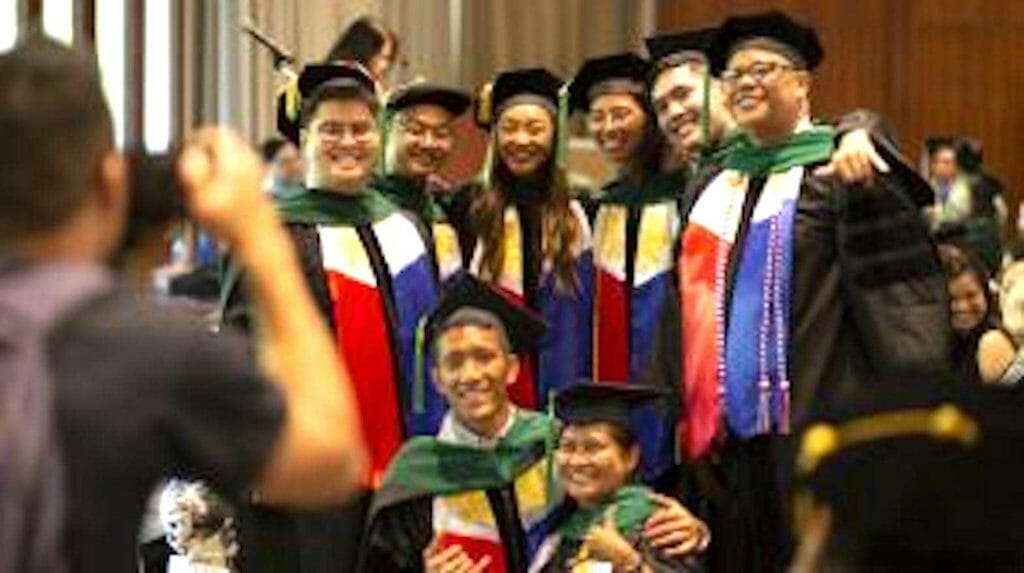Filipinos in Hawaii underrepresented in higher education

Graduating Filipino students at the University of Hawaii. While Filipinos make up nearly a quarter of the population in Hawaii, they are generally underrepresented in higher education. UH
HONOLULU – Hawaii’s Senate wants the University of Hawaii and a Filipino advocacy group to submit a report next year on the needs of Filipinos at the university.
The reason: Senate Concurrent Resolution 132 states that while Filipinos make up nearly a quarter of the population in Hawaii, they are generally underrepresented in higher education.
The resolution asks the report to indicate the budgetary and resource needs of Filipino students and recommend steps for curriculum development, representation and success of students, faculty and staff, according to Civil Beat.
Amy Agbayani, a member of the advocacy group Pamantasan Council, said the overall goal of the resolution is “to say that Filipinos matter” at the university and the state.
“They need that higher education, a state benefit, which should be equally accessible to this significant population,” Agbayani told Civil Beat.
According to the resolution, Filipino students are mostly represented at community colleges in the islands, although it also points to the low transfer rates to four-year universities.
“While Filipino student representation at the University of Hawaii at Manoa has increased, Filipino students continue to be underrepresented at the undergraduate level and are significantly underrepresented in graduate and professional degree programs,” the resolution said.
More than 3,700 Filipino students enrolled in the university’s community colleges for the spring semester this year. More than 1,600 enrolled at UH Manoa, 704 at UH West Oahu and 211 at UH Hilo, according to official figures at the university.
Across the university’s four-year colleges – including UH Manoa, UH Hilo, and UH West Oahu – Filipinos make up 3.8% of tenured faculty compared with 47.8% of white tenured faculty.
The resolution faced no opposition.
Nicole Alia Salis Reyes, an associate professor of the UH Manoa’s College of Education who is Native Hawaiian and Filipina, said that Filipino faculty are underrepresented at her college, with only five of 188 identifying as Filipino.
“Of my colleagues, some are in temporary positions that have become increasingly precarious during this time of the pandemic,” Reyes said in written testimony

